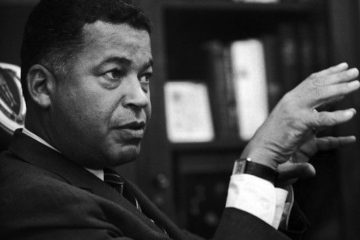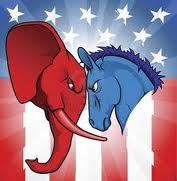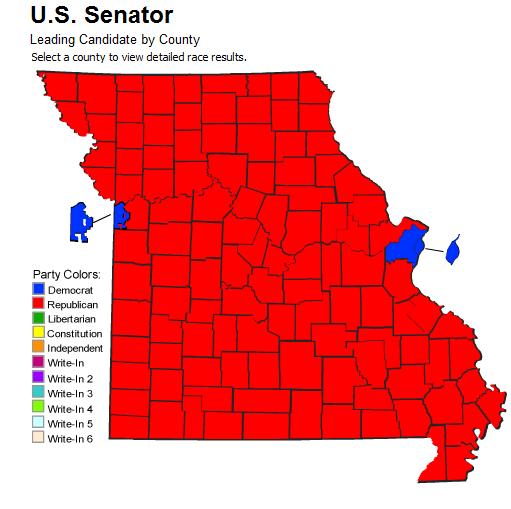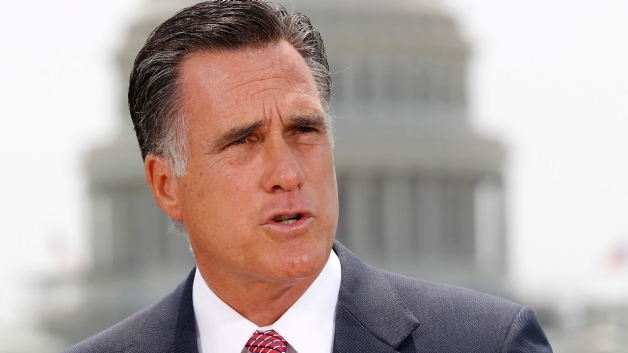
Remembering the first African American elected to the US Senate — a Republican
Sadly but not surprisingly overlooked, Tuesday will be the 50th anniversary of the election of Edward Brooke to the US Senate. On 8th November 1966, Brooke became the first African American to be popularly elected to the Senate, representing Massachusetts as a Republican, which at the time was 97.8% white and had voted 67% Democratic in the previous presidential election. It was one of the highlights of my life to interview Brooke seven months before he died. Brooke was one of the last of a generation of black leaders who personally knew someone who had been born into slavery. Brooke’s grandfather (and namesake) was born a slave on a plantation near Fredericksburg, Virginia. Brooke described him to me as follows: …

How voter turnout could put Trump in the White House
I recently spent a month travelling in the US and the word on the street is that Donald Trump could be the next president. Before the EU referendum earlier this year, I wrote about public opinion in the UK. At the time, most political pundits were predicting a remain result but there was a noticeable public sentiment to leave. Something similar is happening in the lead up to the US presidential election. While many political commentators still find it difficult to accept that Trump is a contender, many of the people whom I met on my road trip expect him to win. Of course, given voting is not compulsory in the US, voter turnout will have a big influence on the result. …

The Schadenfreude Candidate
Donald Trump is probably not a Manchurian candidate planted by Vladimir Putin to disrupt the American political landscape. That is just the latest attempt to explain how, of all people, the crude thrice-married billionaire from the outer boroughs became the Republican nominee for President of the United States. While the “Trump as Russian sleeper agent” theory is far-fetched, several well thought-out explanations have caught on. Too often, though, these fail to explain why Trump specifically became the standard-bearer of the GOP and stands a shot at winning the election. The jump from “what is happening” to “why him,” is key to understanding the Trump phenomenon. Bearing this in mind, I argue that Donald Trump is the candidate of schadenfreude. Not …

Targeting and Turnout in the 2012 US Presidential Election
One of the big questions in the run-up to the 2012 Presidential Election was what the turnout would be. Would the supposed “enthusiasm gap” lead to lower turnout amongst some of the key demographics behind Obama’s 2008 victory, like African-Americans and college students? Would the absence of the extraordinary volunteer mobilization seen around the Presidents’ first campaign leave his re-election effort without the capacity to expand the electorate through large-scale voter registration efforts and an extensive and intense effort to get out the vote?

Does the Republican Party actually know who votes for them?
You would think that the US presidential campaign teams would have a pretty good idea of what sort of person is likely to vote for them. A recent book suggest that the Democrats have developed highly complex ways of figuring this out. On the other hand, given two recent events, I’m not sure the Republicans have any idea.

What’s the matter with Missouri?
This is a common question following the row over Congressman Todd Akin’s comment about abortion and rape. In a 2004 book, Thomas Frank, the liberal columnist and author, asked a similar question about Missouri’s western neighbour, Kansas, which has lurched far to the right in recent decades (indeed, its current governor Sam Brownback might well be the most extreme right-wing governor in the union). Yet there is little mystery about Kansas: its rightward shift is part of a broader trend in the Great Plains, which now rivals the South for the status as the heart of the GOP. But Missouri’s rightward shift, which Todd Akin so demonstrated, is perhaps more surprising. Missouri has the makings of a state that could go blue …

Forward to the Past: The Ideology of Romney’s Republicanism
‘President Obama has said that he wants to transform America. I don’t want to transform America; I want to restore the values of economic freedom, opportunity, and small government that have made this nation the leader it is.’ (4 April 2012, Remarks to the Newspaper Association of America) It is less than a hundred days until the election for the most powerful political office in the world, the President of the United States of America. The November election ‘will be a defining event’. Not said by the usual peddlers of political commentary and punditry, but by the Republican nominee for President, Mitt Romney. The US election of 2008 was monumental and arguably constituted a dramatic turning point in the political history …

The fight goes on—from Arizona and Michigan to Super Tuesday
Mitt Romney won yesterday’s two primaries in Arizona and Michigan, but he didn’t win by enough to (re)establish a sense of inevitability around his candidacy. He has been the favourite for so long that everything but decisive victories ends up being framed as a bit of a disappointment. Here is Whit Ayres, a Republican political operative, speaking to the Washington Post a few days before this week’s primaries—“if [Romney] wins Michigan by double digits, especially if combined with a double-digit Arizona win, then all the chatter will die down just like it did after Florida.” But Romney didn’t win Michigan by double-digits, and the chatter hasn’t died down. Though Santorum lost both states, no one seems to really hold it …









